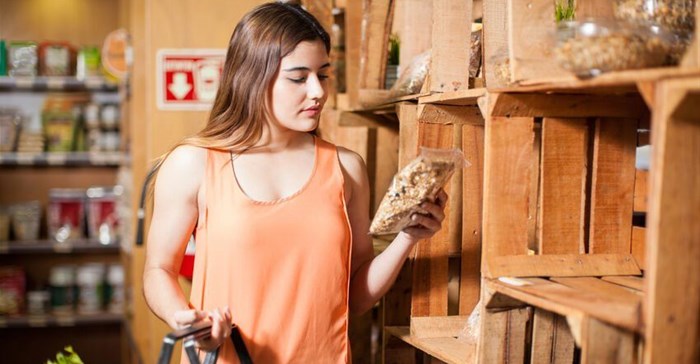






Tetra Pak, a multinational food packaging and processing company, notes that the personal, economic and environmental fragility experienced during the global pandemic has created a shift from concern to active caretaking, and a desire to take action to keep ourselves, our food, our communities and the planet secure.
Food safety and security are top priorities too, according to the global report, with the pandemic shining a spotlight on health and highlighting weak points in our food systems.
Worries about the environment are very strong, with pollution and plastic litter in the ocean as the joint top worry (83%) and global warming closely follows, cited by over three quarters (78%) of consumers across nine countries. This sits ahead of food waste (77%) and food accessibility (71%). Meanwhile, nearly half (49%) of the global population are now recognising the impact that everyday choices have on the environment.
Lebohang Mothobi-Tilo, marketing director at Tetra Pak Southern Africa, comments: “Tetra Pak Index reveals insights around how South Africans are adjusting their everyday choices to make a positive difference towards a more resilient and sustainable future. From the choices they make at home, to which businesses they decide to buy from, the pandemic has reinforced responsible consumption as a key trend, with greater demand for action throughout society.”
“Responding to these needs and expectations requires long-term focus and a system-wide collaboration from all stakeholders. The UN has already called the 2020s the ‘Decade of Action’, emphasising the need to act now. As a purpose-led company and a global industry leader, we remain fully committed to play our part.
“We believe that the world’s food systems need to transform to meet the needs of society, improving food security while reducing the impact on natural resources. We therefore aim to focus on three key areas: increasing access to safe, nutritious food; reducing food loss and waste; and building more sustainable value chains.”
According to Tetra Pak, the lack of freedom and choice over the last 20 months has driven consumers to regain control and demand action to change the status quo, in whatever way possible. They are proactively looking for ways to make a difference in their own lives, in order to improve their own physical and mental well-being – such as through dietary choices – and in the environment around them, by recycling more and reducing waste.
For example, according to the report, 62% of consumers pay more attention to the quality of what they eat and drink, while 54% are throwing away less food now than before the pandemic. Notably, 72% agree that ‘individuals like me’ need to act now, or they will be failing future generations.
Consumers are also looking to businesses to lead the way and help them stabilise the new habits they form. Over one-third (35%) are more frequently choosing brands based on their sustainability credentials than before the pandemic, while one in two (50%) say being environmentally friendly is a top need for food packaging and 61% expect food and beverage companies to lead the way in finding solutions.
With more time being spent at home, the household waste “footprint” is more visible. In a bid to address this, consumers are adapting their routines. Over half (55%) are planning meals more carefully to avoid waste, while just under half (46%) are making a greater effort to sort materials such as cartons, glass and plastic properly for recycling since the pandemic. One in two (50%) also say they are likely to recycle more in the next year as part of their personal contribution to tackling climate change.
The pandemic has made people more thoughtful, with greater empathy for others. They have a new appreciation for meaningful connections with friends and family and beyond – and shared food and beverage experiences often play a key role in making these connections enjoyable and fun.
“Together out of home” consumption occasions have experienced the highest increase since the start of the pandemic, up by 56%, which is why it is one of the opportunities highlighted in the report within habits. Another is shopping locally and sourcing local products demonstrating the growing link between the environment and society.
Beyond immediate family and friends there is also a concerted effort to rebuild societies, with nearly a third (32%) actively influencing their community to reduce waste – signalling a movement of climate champions. Indeed, in some regions such as the UK the environment has surpassed Covid-19 as the number one concern.
Consumers are looking for ways to transition from fragility to resilience. In their own lives, this translates to improving their own physical and mental wellbeing, through their choice of diet and ingredients. Since the start of the pandemic, consumers have experienced sweeping, rapid change, and made many sacrifices. What is clearly here to stay, says Tetra Pak, is that consumers are taking actions in their own lives to build a more sustainable future and expecting companies to do the same – as well as helping them in this mission.
Sharing an update on Tetra Pak's R500m Pinetown factory upgrade, Waqas Ali, factory director at Tetra Pak Southern Africa, comments, "The company’s R500m investments to upgrade the Pinetown plant will contribute to boosting the regional and national economy. Furthermore, it will increase Tetra Pak’s production capability allowing it to extend its reach to support more customers; and has the additional benefits of direct and indirect job creation.”
The upgrade commenced earlier this year and will take place over a period of several years. According to the company, the upgrade will enable an increase to 80% in local content, which will not only assist the local supply chain but lead times for delivery to clients will also fall considerably.